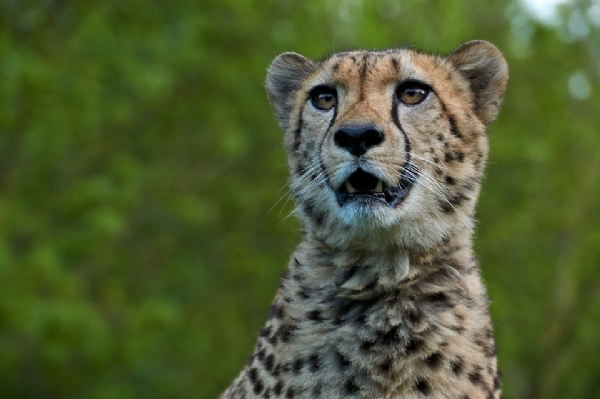Cheetahs to be brought from Africa to Kuno National Park in MP as promised
This is the first time that a trans-continental shifting of a large carnivore will take place.
Total Views |
New Delhi, June 08: In January, the central government has decided to reintroduce cheetahs, under the 'Action Plan for Introduction of Cheetah in India’. Now, a batch of cheetahs will be translocated from South Africa to India in August this year after delays caused due to the Covid pandemic.

Reports suggest the first batch of five-six Cheetahs will be translocated from South Africa to Kuno National Park in Madhya Pradesh. This is the first time that a trans-continental shifting of a large carnivore will take place.
A team of experts from South Africa will arrive in India on June 15th, and visit the park to oversee the arrangements for the translocation. The Ministry is coordinating with the National Tiger Conservation Authority (NTCA) as well as the Wildlife Institute of India, which has been spearheading the project on behalf of the Indiangovernment.
Union Minister for Environment, Forest and Climate Change, Bhupender Yadav had informed that PM Narendra Modi is keen on the protection and conservation of seven major big cats including Cheetah. "Project Cheetah aims to bring back independent India’s only extinct large mammal – the cheetah. As part of the project, 50 cheetahs will be introduced in various National Parks over five years."
Also Read: After 69 years, Cheetah to be again introduced in India
Cheetah happens to be the only large carnivore that got completely wiped out from India, mainly due to over-hunting and habitat loss. The Action Plan highlights the nation’s preparedness in bringing the cheetah back. Conservation of Cheetahs has a very special significance for the national conservation ethic and ethos. The very name 'Cheetah' (Acinonyx Jubatus Venaticus) originates from Sanskrit and means 'the spotted one'.
Besides conserving the big cat, the initiative in itself is a boon to the ecosystem. Cheetahs live in open plains; their habitat is predominantly where their preys live - grasslands, scrubs and open forest systems, semi-arid environments and temperatures that tend to be hotter compared to cooler regimes.
In saving cheetahs, one would have to save not only its prey-base comprising certain threatened species, but also other endangered species of the grasslands and open forest ecosystems, some of which are on the brink of extinction. It is also observed that among large carnivores, conflict with human interests is lowest for Cheetahs. They are not a threat to humans and do not attack large livestock either.
Also Read: Cheetahs to be reintroduced in India: Report
Amongst the 10 surveyed sites of the central Indian states, Kuno Palpur National Park (KNP) in Madhya Pradesh has been rated the highest. This is because of its suitable habitat and adequate prey base. KNP is 748 sq. km. in area, devoid of human settlements, forms part of Sheopur-Shivpuri deciduous open forest landscape and is estimated to have a capacity to sustain 21 cheetahs.
Kuno is probably the only wildlife site in the country where there has been a complete relocation of villages from inside the park. Kuno also offers the prospect of housing four big cats of India - tiger, lion, leopard and cheetah – and allowing them to coexist as in the past.
The other sites recommended for holding and conservation breeding of cheetah in India, in controlled wild conditions are:
- Nauradehi Wildlife Sanctuary (1,197 sq. km, habitat 5,500 sq.km), Madhya Pradesh
- Gandhi Sagar Wildlife Sanctuary – Bhainsrorgarh Wildlife Sanctuary complex (~2500 sq.km), Madhya Pradesh
- Shahgarh bulge in Jaisalmer, Rajasthan (4,220 sq.km)
- Mukundara Tiger Reserve as fenced enclosure (~80 sq.km), Rajasthan

